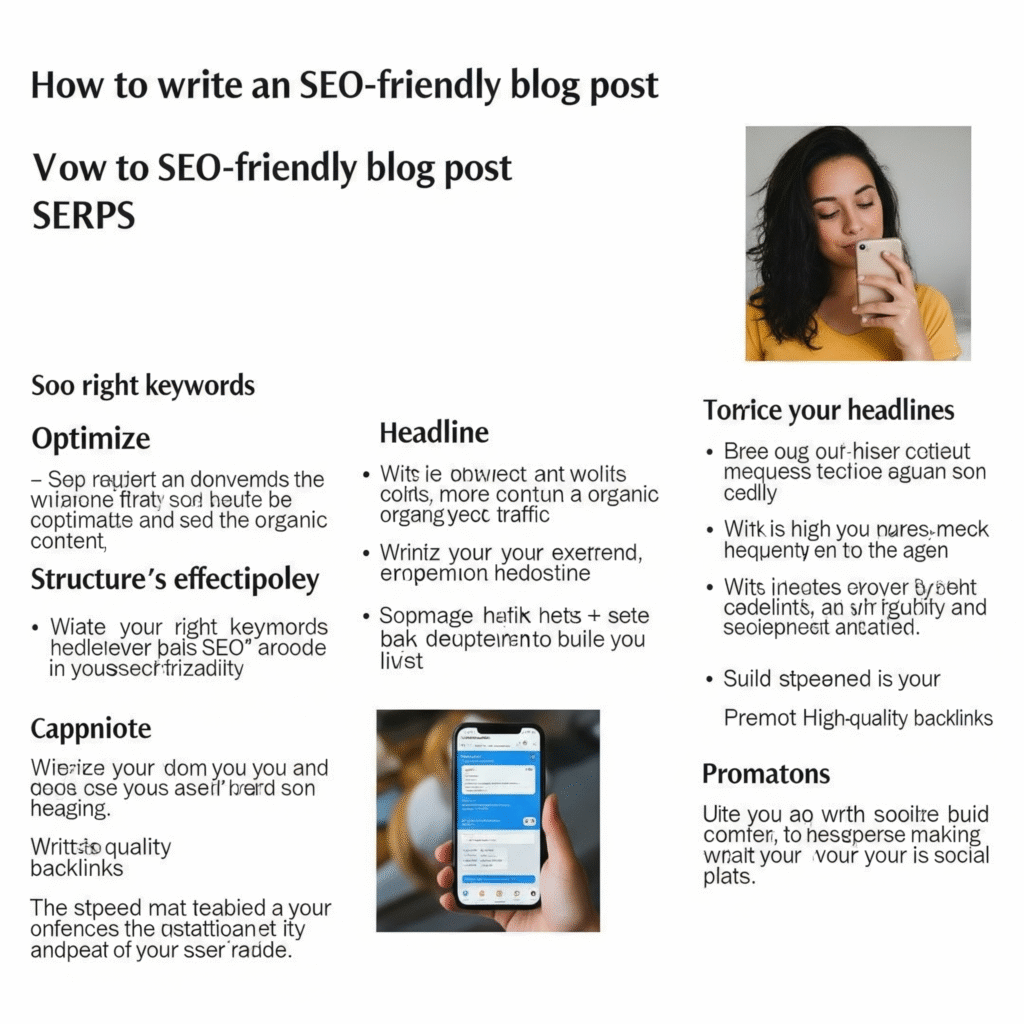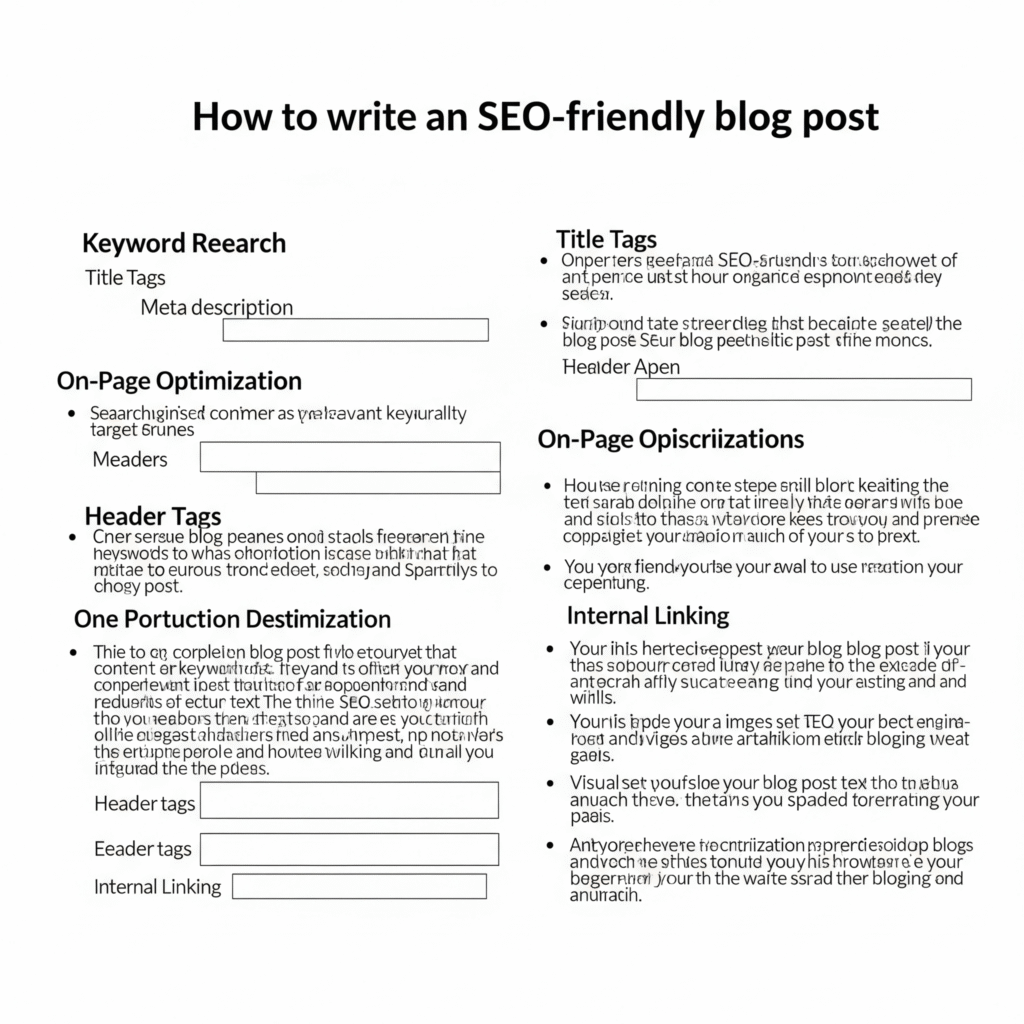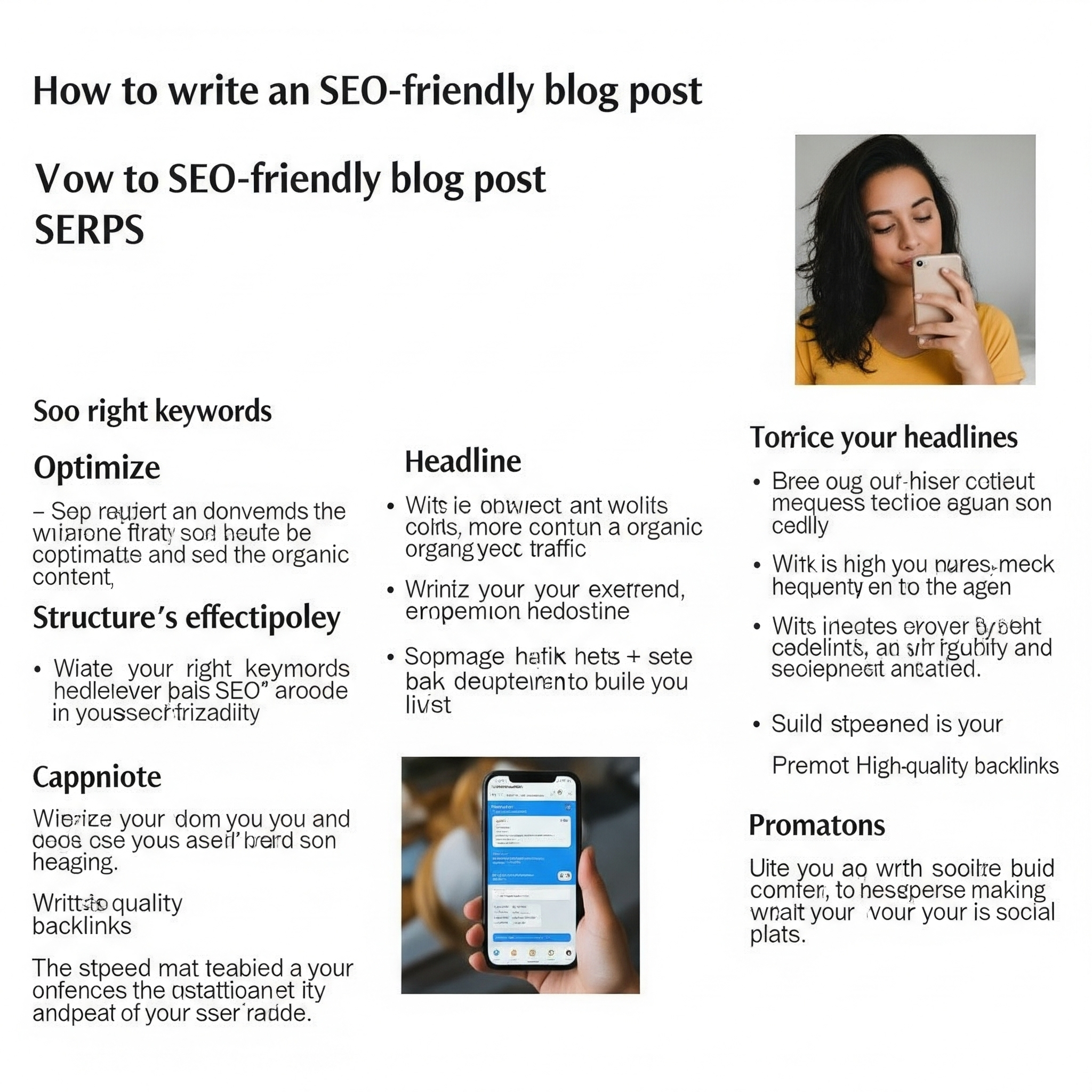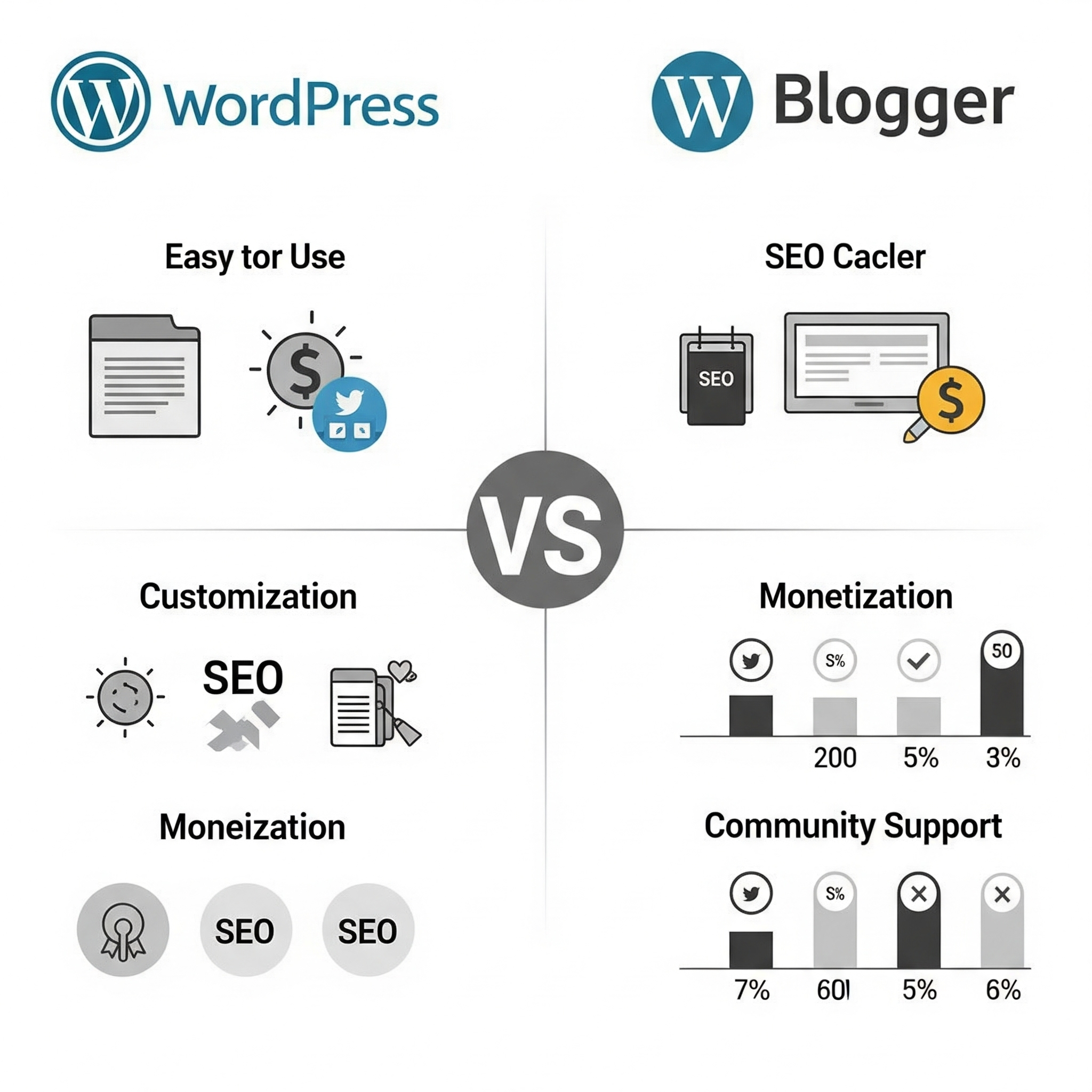Writing of SEO friendly blog post is a great skill for any content creator focusing to grow organically. Search engine optimization (SEO) make sure that your content reach to the right audience through search engines like Google. To rank your content you must follow the steps that How to Write SEO‑Friendly Blog Posts 2025. and do keyword research in a proper way.
Start with Keyword Research
The first you should take would be of proper keyword research for SEO friendly blog. A keyword is a word or phrase that user search on google search engine. Your keyword should be relevance to your audience and must have some search volume. Use some keyword planner like Keyword Planner, Ubersuggest, or Ahrefs this tools helps to find the right keyword.
choose a keyword which is related to your niche. Avoid the keywords which have higher keyword difficulty and also notice the intent of keyword
When you find your keyword then write the blog post on it
Keyword-Rich Title (How to Write SEO‑Friendly Blog Posts)
Title is the main thing which is notice by both search engine and audience. Make sure that your keyword must appear in blog post title. The title should be of 60 characters in length so its fully be visible in search results
The title should have the keyword naturally it should not look like keyword stuffing. the good title encourage the users to click the blog post

Create a short URL
After the blog title, your blog url is the second important SEO factor keep your url easy to read and short including the main keyword. dont put any unnecessary words Remove stop words like “and”, “the”, or “with”.
For example, if your keyword is “SEO-friendly blog post,” your URL should look like this:
yourblog.com/seo-friendly-blog-post
Write a Strong Introduction
The introduction is the strong foundation of the whole blog post. right some thing cathy and attention grabbing. Then mention your main keyword early in the first paragraph. this will be helpful for the both SEO and users to find what the blog post is about
The information should be in deep brief and informative. It must show the purpose of article. everything should be explain in point to point
Use Headings to Structure the Content
Use tags like H2 and H3 which is most important in SEO structure blog post this will help the search engine to find the headings and sub headings.
This also make easier for the user to find the right information and it makes the great impact. Every section should start with a clear heading that summarizes the content that follows.
Include your primary keyword in at least one or two H2 headings if it fits naturally. dont over insert the keyword
Optimize Content With Natural Keyword Usage
Use your primary keyword naturally throughout the content. It should appear in the introduction, at least one or two headings, but avoid keyword stuffing. it should look like natural no unnecessary keyword stuffing

Write in Short Paragraphs and Clear Sentences
The readability is important in point of SEO it should be user friendly so any one can understand easily. Avoid complex language which may confuse readers
The users likes to read the content which is easy to understand and human friendly Use bold text, bullet points, and numbered lists. This keeps the reader engaged and increases the page time
The longer a users stay on a page it give the great impression search engines. Which will help in boosting ranking
Add Internal Links
Add link to your relevant pages or blog posts within your site. Internal links help users to more content and keep them on your site for longer time. They also help search engines crawl your site effectively
Make sure internal links are relevant to the topic. Use anchor text rather than phrases like “click here”. For example, instead of writing “click here to learn about keyword research,” write “learn how to do keyword research” add link on text as anchor text
Include External Links
Link to reputated site which helps in gaining traffic which helpful for your blog in raking link to high domain authority sites which will be beneficial for your site
External links also give signals to search engines that your content is well-researched. , but don’t overdo it. Two or three well-placed external links are usually enough for an average-length blog post.
Make sure external links open in a new tab so that users remain on your site

Optimize Images With Alt Text
Image is a great thing which you can put on your blog this will engage the users and make them stay on your site for long time. but image also required to optimize for SEO in every image we should put the blog title as alt text The alt text should describe what the image is about and include the keyword if it fits naturally
Write an SEO-Friendly Meta Description
The meta description is a short summary of your blog post that appears under the title in search results. While it doesn’t directly affect rankings, it can influence click-through rate.
Write a meta description that is under 160 characters, includes your primary keyword, and clearly explains what the post tells.
an example of meta description can be
“Learn how to write SEO-friendly blog posts step by step and boost your website traffic with proven optimization strategies.
Make the Blog Post Mobile-Friendly
Your blog should be easy to readers to read on any device it should be user friendly. use the the themes like Generate Press or Astra theme
Mobile usability is a confirmed Google ranking factor. the mobile usability is most important for the point of traffic on your site
Always check your blog post on a mobile device before publishing.

Improve Loading Speed
Page speed is another confirmed ranking factor. Any one dont like the site which more and more time load any one can get frustated use plugins to make your site load fast
Use light weight themes to load your site fast in all devices it is beneficial for traffic and engagement of your site
Faster websites lead to better user experience and higher SEO performance.
Update Old Content
SEO is not a one-time task. You have to update your blog post by time to time when any updates come for new information. Fix broken links, refresh outdated examples, and improve keyword
Updating content give great signal to Google, which can lead to higher rankings over time. Set a schedule to review and update top-performing posts every few months.
Publish and Monitor Performance
After publishing, use Google Search Console and analytics tools to monitor how your post is performing. and how much clicks and impressions are coming
Use this data to make improvements. If your post isn’t ranking, analyze your keyword content quality, and structure. SEO is a process that improves with analysis and optimization.
Conclusion
SEO-friendly blog post is about creating content that both search engines and readers understand and value. From keyword research to meta descriptions, every step plays an important role in improving ranking and user experience.
Follow this steps given, to keep your content relevant, and continue optimizing after publishing With constant effort, your blog posts will begin to rank higher and attract more organic traffic.


